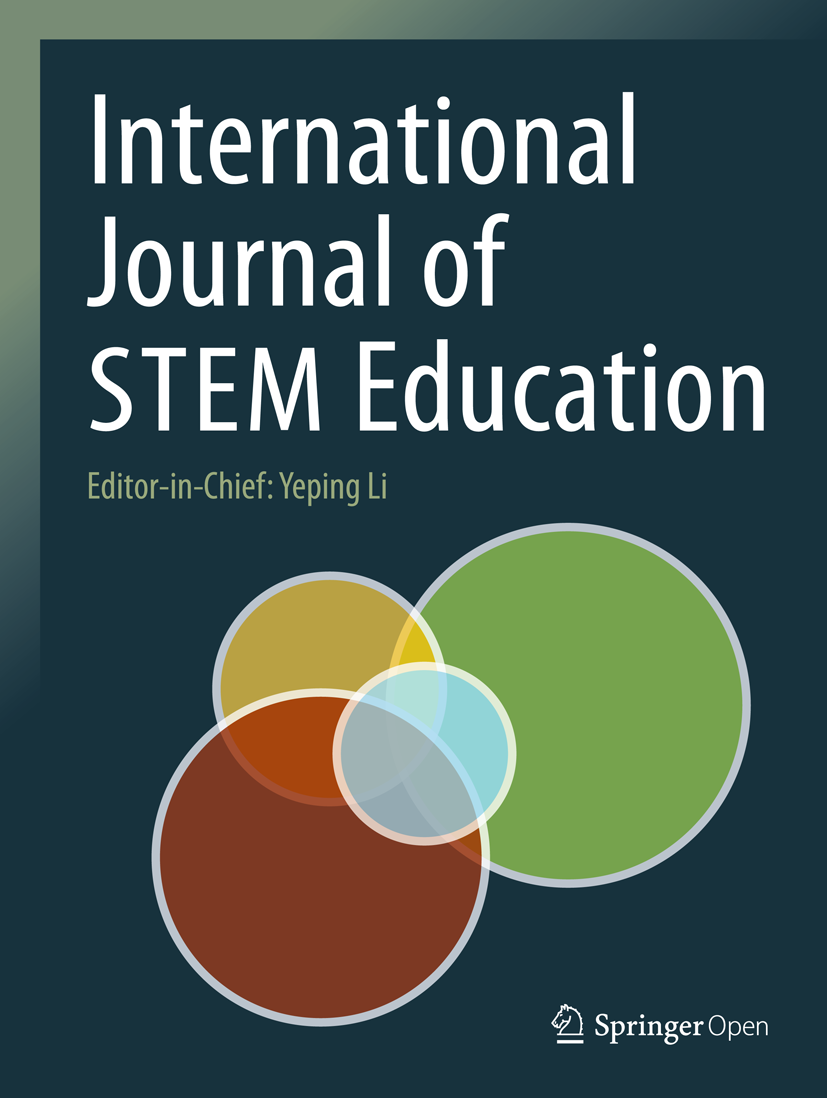STEM 中的 S:科学焦虑的性别差异及其与科学考试成绩相关变量的关系
IF 8
1区 教育学
Q1 EDUCATION & EDUCATIONAL RESEARCH
引用次数: 0
摘要
STEM 教育因其在创新和经济发展中的关键作用而取得了长足的发展。虽然认知因素(如先前的知识)是 STEM 成功的已知预测因素,但非认知因素(包括态度和人口统计)也起着至关重要的作用。然而,与数学等领域的广泛研究相比,针对 STEM 中的 "S"--科学--的研究明显不足。本研究旨在通过探讨科学考试成绩和相关态度中的性别差异来填补这一空白,从而深入了解 STEM 教育中这一研究不足的方面。有效样本包括 1839 名参加计算机辅助科学测试的爱沙尼亚十二年级学生。测试由化学、物理、生物和地理等任务组成,还进行了测试后调查。在所有样本中,结果显示考试成绩与考试持续时间、努力程度和考试重要性呈正相关。考试成绩与考试难度呈负相关。有趣的是,虽然一般的科学焦虑与考试成绩无关,但特定学科的焦虑,尤其是化学焦虑与考试成绩呈负相关。虽然考试成绩没有性别差异,但在所有科学焦虑测量中,女生的得分始终高于男生。此外,女生认为理科测试更难,她们完成测试所花的时间也更长。性别子样本的相关性与总样本中观察到的相关性一致。科学测试成绩与测试相关变量之间的关联是微妙的:学生不一定会有 "普遍 "的科学、技术和工程学焦虑,但可能与特定科目有关。此外,研究结果表明,虽然在考试成绩上没有性别差异,但女生在自然科学科目上的焦虑感更强。这些发现表明,有必要对这种焦虑的根源进行调查,因为这种焦虑似乎并非源于能力。本文章由计算机程序翻译,如有差异,请以英文原文为准。
The S in STEM: gender differences in science anxiety and its relations with science test performance-related variables
STEM education has experienced significant growth due to its pivotal role in innovation and economic development. While cognitive factors like prior knowledge are known predictors of STEM success, non-cognitive factors, including attitudes and demographics, also play vital roles. However, there is a notable scarcity of research focusing on the "S" in STEM—science—compared to extensive studies in fields like mathematics. This study aims to address this gap by exploring gender differences in science test performance and related attitudes, providing insights into this under-researched aspect of STEM education. The effective sample comprised 1839 Estonian 12th-grade students who took a computer-assisted science test. The test consisted of tasks combining chemistry, physics, biology, and geography, and a post-test survey was also administered. Across the total sample, the results showed that test performance positively correlated with test-taking duration, effort, and test importance. Test performance was negatively correlated with perceived test difficulty. Interestingly, while general science anxiety was not associated with test performance, subject-specific anxiety, especially chemistry anxiety had a negative association with test performance. While there were no gender differences in test performance, female students scored consistently higher on all science anxiety measures, compared to male students. Furthermore, female students assessed the science test to be more difficult, and they also took more time to complete the test. The correlations in gender subsamples mirrored those observed in the total sample. The association between science test performance and test-related variables is nuanced: students might not necessarily have a “general” STEM anxiety but it may be associated with a specific subject. Moreover, the findings imply that although there are no gender differences in test performance, girls have a greater anxiety when it comes to natural sciences subjects. These findings indicate the need for investigating the origin of such anxieties, which do not seem to stem from aptitude.
求助全文
通过发布文献求助,成功后即可免费获取论文全文。
去求助
来源期刊

International Journal of Stem Education
Social Sciences-Education
CiteScore
12.40
自引率
11.90%
发文量
68
审稿时长
13 weeks
期刊介绍:
The International Journal of STEM Education is a multidisciplinary journal in subject-content education that focuses on the study of teaching and learning in science, technology, engineering, and mathematics (STEM). It is being established as a brand new, forward looking journal in the field of education. As a peer-reviewed journal, it is positioned to promote research and educational development in the rapidly evolving field of STEM education around the world.
 求助内容:
求助内容: 应助结果提醒方式:
应助结果提醒方式:


